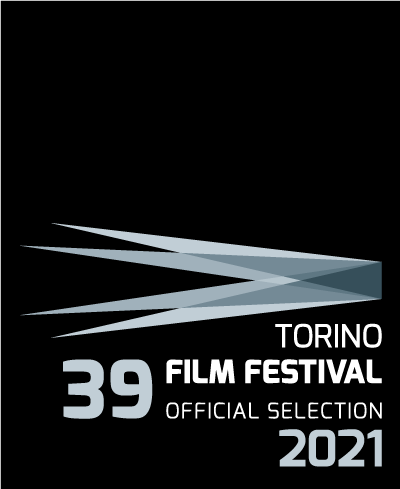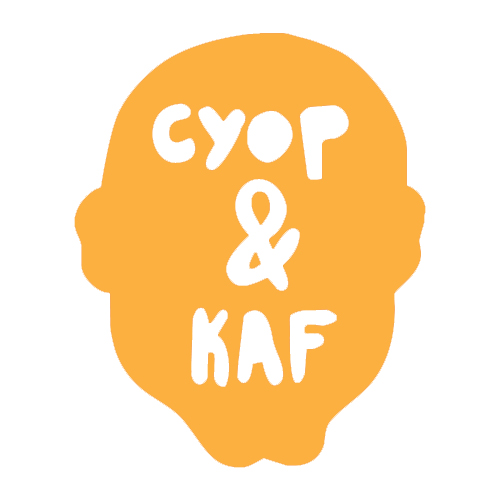cyop&kaf
cyop&kaf official web site

A summer camp, a judo dojo, a theater workshop in a contemporary art museum: the relationships between groups of adolescents and their adult guides. Teaching methods and educational practices; material and symbolic rules; the relationship between the form of places and behavior. All around, as a frame, the stories of Bruno Leone (master of “guarattelle”) and Peppe Carini (teacher), able to show the deep roots of the relationships between students and teachers, but also the political suggestions of an only apparently remote past, in a city like Naples where the school has never been the only place, or even the main one, where learning to live.
news
Lievito at Torino Film Festival
(Italiano) Domenica 28/11, ore 20.00 Cinema Massimo 2 (proiezione ufficiale)
Lunedì 29/11, ore 9.30 Cinema Massimo 2
Martedì 30/11, ore 22.00 ACEC Baretti
Mercoledì 1/12, ore 22.00 Cinema Greenwich 1
Lievito al cinema
(Italiano)
martedì 22 marzo, ore 20:00
Milano, Cinema Beltrade
dal 24 marzo al 6 aprile, ore 18:15 / 21:30
Napoli, Modernissimo
giovedì 24 marzo, ore 17:30
Savona, Nuovofilmstudio
venerdì 25 marzo, ore 21:15
Genova, Tiqu Teatro
domenica 27 marzo, ore 18:30
Firenze, Cinema La Compagnia
lunedì 28 marzo, ore 20:30
Pisa, CineClub Arsenale
> scarica la locandina
press review
Sentieri selvaggi
(Italiano) Durante una gita in pineta, un allenamento o uno spettacolo di marionette non ci sono protagonisti, c’è però una dualità, un binomio, quello tra educatori e ragazzi, gli uni inseparabili dagli altri come i poli di un magnete...
Close up
(Italiano) È un documentario nudo e crudo che non ha bisogno di niente se non quello che mostra e che si rivela onesto e diretto (leggi qui)
Quinlan
(Italiano) Quel che ne viene fuori è una affascinante mappatura della città (per quanto diretta e dunque semplice per lo spettatore), del rapporto osmotico tra abitanti e territorio e di quanto già esso, prima ancora di qualsiasi passaggio successivo, indichi una via di educazione collettiva; muovendosi di aula in aula, di materia in materia, Cyop&Kaf costringono anche il loro stesso sguardo a interrogarsi su ciò che ha imparato, e su quanto è riuscito a trasmettere. Così Lievito, senza forzature di sorta, diventa anche riflessione sul cinema come strumento di racconto collettivo, e di testimonianza di una popolazione e della sua storia, presente e passata che sia. (leggi qui)
Repubblica
(Italiano) Nel documentario, c’è tutto ma non la scuola, spesso incapace di dare risposte ai ragazzi più inquieti: c’è il judo del Kodokan all’Albergo dei Poveri, c’è il teatro didattico di Arrevuoto che da Scampia in 15 anni è arrivato a tutta la città, ci sono le guarattelle di Bruno Leone. Il sogno di un «mondo salvato dai ragazzini». (leggi qui)
Corriere del Mezzogiorno
(Italiano) Il film non ha intenti meramente documentaristici ma, al contrario, costruisce una narrazione che volontariamente incrocia diverse esperienze con l’obiettivo di offrire un racconto incentrato sul coinvolgimento emotivo tanto degli operatori che dei protagonisti dei diversi spazi di intervento pedagogico. (leggi qui)
FilmTV
(Italiano) Nella Apologia di Socrate, dove Platone ritrae il suo maestro davanti agli accusatori, questi dice: «Mi pare che il dio abbia posto me ai fianchi della città: né mai io cesso di stimolarvi, di persuadervi, di rampognarvi uno per uno, standovi addosso tutto il giorno». A quasi dieci anni di distanza da Il segreto (2013), i “graffitari” cyop&kaf tornano dietro la mdp per documentare la storia di alcuni di quei tanti maestri che operano al di fuori dell’istituzione scolastica: un dojo di judo; un laboratorio teatrale in un museo d’arte contemporanea; una colonia estiva. È un’arte di “prossimità” quella praticata da cyop&kaf; ciò che hanno scritto, o meglio ha scritto (terza singolare, perché i due artisti si pronunciano come una sola persona) riguardo i loro interventi street art, «i personaggi che dipingo mi disegnano, non viceversa», vale anche per il loro cinema, dove l’immagine è, prima di tutto e sopra ogni cosa, una zona di contatto, la visualizzazione di un incontro, che si realizza partendo da un gesto di reciprocità, di condivisione (come dichiara l’insegnante di judo ai suoi allievi rivolgendosi a chi in quel momento li sta riprendendo: «Lui è molto bello, perché lui ha sposato questo progetto, ci crede. Per fare questo ci vuole il cuore»). Lievito è un film politico perché rivendica la necessità di una pratica che questo tempo post-pandemico ci convince a mettere in discussione, quella della trasmissione del sapere e di un mestiere possibile soltanto osservando i maestri “vivi” all’interno di uno spazio-tempo condiviso, fino a farsi maestri gli uni degli altri, in quella scuola-bottega che è il lavoro quotidiano.
Carmilla
(Italiano) (…) è un film che resterà, un documento che è il frutto della partecipazione attiva di chi sa stare dentro alle cose che accadono senza rinunciare alla riflessione critica, e che quindi è capace di restituire la realtà dei processi d’intervento con rispetto e onestà, evitando descrizioni didascaliche e indugi, rifiutando di compiacere lo spettatore avido di storie da consumare (leggi qui)
Arte Settima
(Italiano) Per cyop&kaf la soluzione non è mai nella risposta, ma piuttosto nella domanda. Il sale della crescita, anzi il lievito, sono l’interrogazione, il confronto, il conflitto, la sfida. Ci ricordano che i valori pedagogici dello scambio e dell’ascolto sono alla base di ogni realtà sociale funzionale, sono ciò che permette di addomesticare la “tribù”, di forgiarla nel fascino dell’apertura e di sospingerla verso una comunione di intenti. (leggi qui)
- Titolo Lievito
- Nazionalità Italy
- Anno di produzione 2021
- Durata 70 minutes
- Formato originale DV PAL
- Formato proiezione DCP
- Sottotitoli italian
Director and DOP cyop&kaf;
Soggetto Luca Rossomando
Produced by Antonella Di Nocera
Montaggio Alessandra Carchedi
Montaggio del suono e mix Massimo Mariani
Color grading Simona Infante
Original soundtrack Antonio Raia, Renato Fiorito
A production Parallelo 41
In collaboration with Rai Cinema
With the contribution of Regione Campania, Fondazione Film Commission Regione Campania
In collaboration with Napoli Monitor
Parallelo 41 Office Grazia De Micco, Claudia Canfora, Isabella Mari
Film scanning Passo ridotto
Insurance 3GF srl consulenze assicurative

After showing the adventures of a group of Neapolitan street kids in the film Il segreto (2013), we continued to interact with children and adolescents of the city, "also" using the camera to question ourselves about our practices and them by their living conditions. Lievito is the result of an observation journey and of a reflection began more than twenty years ago. It shows the relationship between adults and adolescents in that intermediate space that exists between the street, the family and the school: this is at the heart of our poetics. From this proximity, indeed, it also derives our way of filming and at certain moments the almost literal intersection between our actions and the plot of the film.
In a place like Naples, where the school has never been the only or the most important formative agent for large strata of the population, investigating what, where, from whom and how the new generations learn today involves a reconnaissance of the disparate environments and situations. So, the film becomes a sort of counterpoint to the informal environments and the relationships exclusively built between peers, the same relationships that are at the center of Il segreto. If in that film we verified the metaphor of the street as "teacher of life", showing all the contradictions of the case but also documenting, with empathy and without moralism, a parallel universe, with its own rules and boundaries, in Lievito the presence of the adult has a prominent and codified role of guarantor and guide.
Here, the master-pupil relationship is investigated in its constructive and ascending phase. The shadowy areas and the resistances are barely mentioned, and the inevitable moment in which the student will begin to doubt the master's teachings is postponed in an indefinite time. Learning proceeds by trial and error; it requires will, exercise and conviction. Experience is built in the closeness and respect of others.
So, our camera remains fixed on relationships, it does not extend its glance to the context of social intervention in the city, influenced by too many factors to be truly up to its proclaimed goals of emancipation. Change, if it occurs, is produced in the relationship with the other.
Two thin traces, which traverse the plot, however, allow us to deepen the look. In the story of the master of guarattelle, Bruno Leone, there is the value of the handover, the uninterrupted chain master-pupil that involves every transmission of knowledge. Peppe Carini, on the other hand, retracing with the help of old films the history of the Mensa dei bambini proletari (Proletarian Children's Canteen), evokes a not-so-distant period in which the educational relationship was the prerequisite for those who wanted to question the consolidated political and social structures of the city.
48 pages, 10x15 cm. The book contains the movie (downladable by Qr-code, also with english subtitles), pictures and texts (only italian version) by Luca Rossomando, Francesco Ceci, Salvatore Pirozzi, Goffredo Fofi
- CONTACTS
- [email protected]

